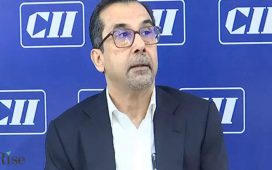It is paramount that the country ensure there are women influencers in small towns and villages to bring awareness, technology, financial access and gender equality to the grassroots. This is necessary to realise true inclusivity, Dasgupta says.
Digital financial services provider PayNearby launched a women skilling and livelihood programme, Digital Naari, in February to give the women a self-sustainable earning opportunity. “In line with the government’s Lakhpati Didi programme, we want to enable livelihood for at least 1 million women and upgrade them into ‘Lakhpati Didis’ in the next 5 years by making them the preferred banking and digital point in their areas,” Dasgupta says.
She points out that surveys have shown that 90% of women prefer taking life and financial advice from other women nearby; therefore, the Digital Naari initiative aims to turn women into community influencers to ensure 100 million women in Bharat get access to banking, finance and other critical services.
The goal is twofold: To help women self-help groups (SHGs), local women business owners, community influencers and aspirational female cohorts at the last mile adopt sustainable livelihood programmes, and to enable essential financial and digital access to millions of other women through these community influencers.

Jayatri Dasgupta, Program Director, Digital Naari, PayNearby.
The initiative trains women in banking and digital services. Its app enables these Digital Naaris to offer a range of products: Sehat (medical advisory and tele-medicines, health, hygiene and affordable sanitation products), Banking (ATM, savings account opening, fixed deposits), Assurance (insurance, credit, mutual funds), SheCommerce (beauty, home appliances, kitchen tools), Advisory (government schemes and benefits) and more. “Our aim is to train women across a whole range of services, so that they can grow into a one-stop access point for other women in the region,” she says.
To make women business correspondents, online and offline training is provided by organising workshops and camps. Information about products and services is made available to participants at their doorsteps. Constant mentoring and nurturing modules are put in place to ensure dropouts are minimised.
Dasgupta understands that one size does not fit all and so the platform provides flexibility for Digital Naaris to offer services based on their convenience in terms of time, location (from home/store), and product preferences.
So far, the initiative has empowered 1.5 lakh women and has an active network of 57,000 active women collectively steering more than Rs 10,000 crore of transactions annually.
However, Dasgupta points out that in the early days of the programme, the income may not be significant to keep them motivated.
The Digital Naari team is drawing expertise, resources and skills from PayNearby’s retailer livelihood programme to scale up the initiative. It has also partnered with multiple government agencies at central and state levels, and is also working with consulting firms, funding organisations, non-government organisations and non-banking finance entities dedicated to women self-help group development.










